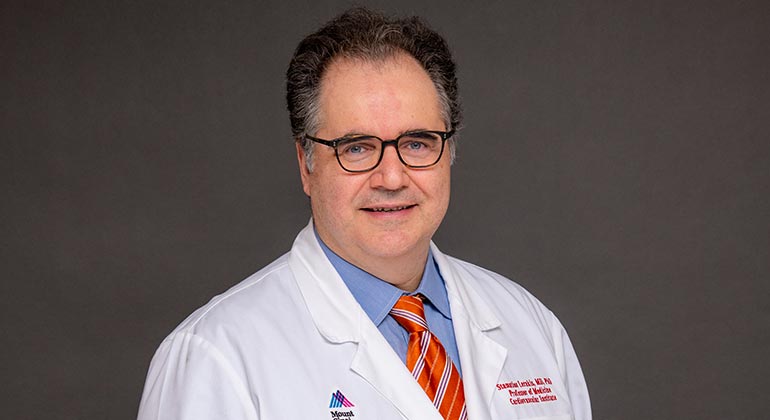Cardiovascular Imaging Program

The Heart Imaging Program at the Mount Sinai Health System is nationally renowned for its academic excellence and clinical achievements. We provide a full spectrum of cardiovascular imaging services with a strong emphasis on patient care, cardiovascular imaging research, advanced technology, and education. Each of our labs is accredited by the Intersocietal Accreditation Commission. We use the most advanced and appropriate imaging techniques to make accurate diagnosis and determine the best therapy for you. Our program includes highly trained staff with technical expertise in each imaging modality, as well as nurses and advanced imaging fellows. All cardiovascular imaging studies are supervised and interpreted by nationally and internationally recognized experts in the field of cardiovascular imaging.
Heart Imaging Tests
We offer a wide range of the most advanced heart imaging tests. Our array of imaging modalities includes:
- Exercise stress testing
- Cardiopulmonary exercise testing
- Echocardiography
- Nuclear cardiology (such as SPECT, MUGA)
- Cardiac PET-CT
- Cardiac magnetic resonance
- Magnetic resonance angiography
- Cardiac CT for calcium score, coronary angiography, and special imaging to support planning of structural and valve interventions
Echocardiography Laboratory
We perform close to 30,000 echocardiograms annually, including stress echocardiograms and transesophageal echo examinations, all using the latest ultrasound technologies. Our Echocardiography Laboratory is staffed by highly skilled sonographers and nurses. We perform advanced quantitative imaging, such as strain and strain rate, and use 3D echo applications. Echocardiography is critical for ensuring that the structural and valve interventions in our Catheterization and Electrophysiology Laboratory are performed safely and efficiently. Such interventions include transcatheter aortic valve replacement, mitral clip, transcatheter mitral valve replacement, mitral balloon valvuloplasty, tri-clip, septal alcohol ablation, PFO/ASD closure, and left atrial appendage closure. We also provide services to our cardiothoracic surgery team. In addition, we are involved in multiple research studies, including artificial intelligence studies that use echocardiography as the primary imaging tool.
Nuclear Cardiology Laboratory
We perform more than 5,000 tests annually, including both exercise and pharmacological stress tests. Some of the pharmacological stressors we use are regadenoson, dipyridamole, adenosine, and dobutamine. We use perfusion tracers, including Technesium sestamibi and thallium-201. We also use Technesium pyrophosphate for the evaluation for cardiac amyloidosis. We perform Exercise ECG stress tests and cardiopulmonary exercise testing for advanced congestive heart failure to determine eligibility for heart transplant. Our technical personnel include experienced registered nurses and certified nuclear technologists.